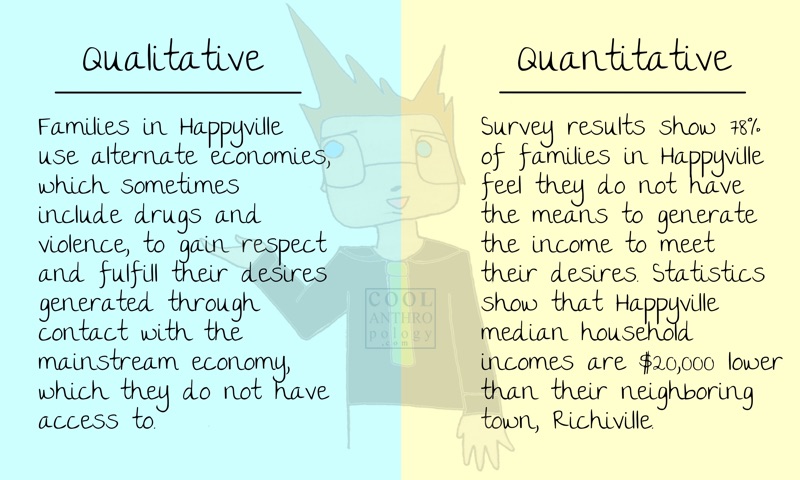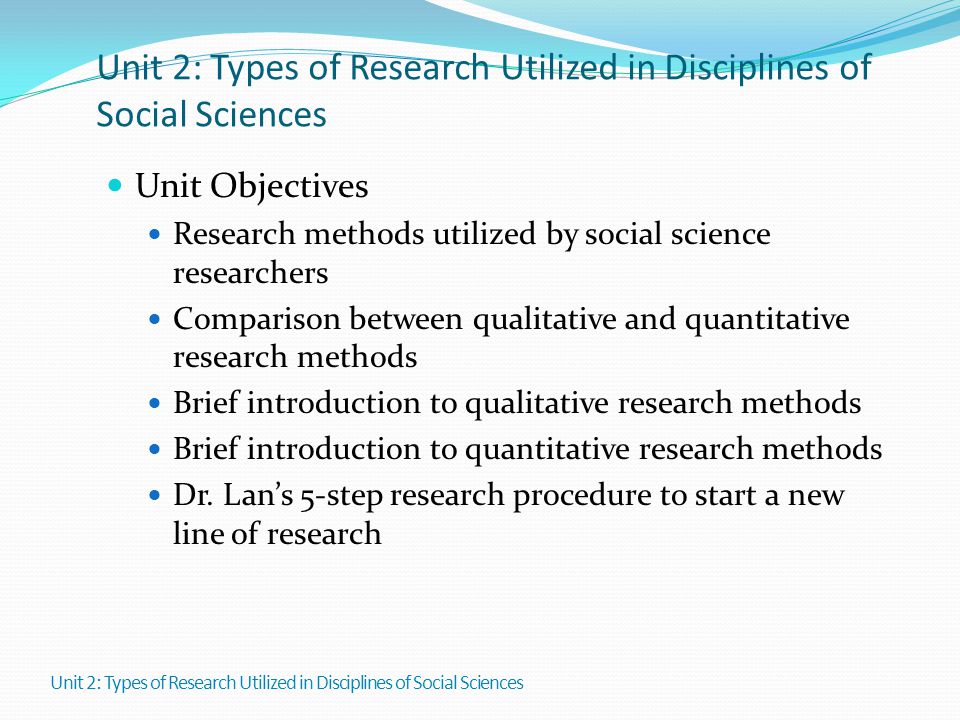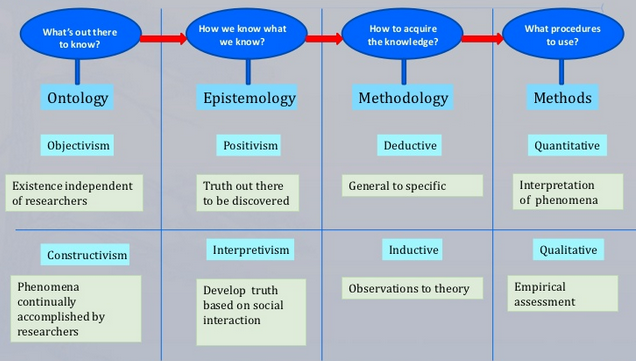-
Gallery of Images:

-
Quantitative Social Research Methods. Organizing Your Social Sciences Research Papers: Types of Designs research guide. The content of this section was created by. Research methods in education (and the other social sciences) are often divided into two main types: quantitative and qualitative methods. This would seem that quantitative and qualitative research methods are pretty incompatible. These extremes are, however, a gross simplification of the. Quantitative Research Methods Free ebook download as PDF File (. pdf) or read book online for free. For practicing quantitative research methods in social sciences. Search Search The SAGE Handbook of Quantitative Methodology for the Social Sciences is the definitive reference for teachers, students, and researchers of quantitative methods in the social sciences, as it provides a comprehensive overview of the major techniques used in the field. The contributors, top methodologists and researchers, have written about. Research in social sciences largely depends on measurements and analysis and interpretation of numerical as well as non numerical data. Quantitative research methods focus on statistical approaches and qualitative methods are based on content analysis, comparative analysis, grounded theory, and interpretation (Strauss, 1990). An introduction to research design in political science and the social sciences in general and the related reflections on research questions, choice of research method, data collection and analysis. Thorough and nuanced knowledge of the possibilities and limitations in using qualitative andor quantitative research methods. Most social science disciplines still operate under the dominant view that quantitative methods are the only legitimate approach to knowledge generation, the idea that objective attitudes toward research are the only correct way of conducting social science. Their SAGE Research Methods Online and Cases database includes contents from books, articles, encyclopedias, handbooks, and videos covering social science research design and methods including the complete Little Green Book Series of Quantitative Applications in the Social Sciences and the Little Blue Book Series of Qualitative Research. Quantitative social science has long been dominated by selfconsciously positivist approaches to the philosophy, rhetoric and methodology of research. This article outlines an alternative approach based on interpretive research methods. Interpretative approaches are usually associated with. Qualitative and quantitative research are the two main schools of research, and although they are often used in tandem, the benefits and disadvantages of each are hotly debated. Particularly in the social sciences, the merits of both qualitative and quantitative research are fought over, with intense views held on both sides of the argument. Qualitative research is a type of social science research that collects and works with nonnumerical data and that seeks to interpret meaning from these data that help us understand social life through the study of targeted populations or places. Social Sciences with Quantitative Methods BSc This BSc focuses on understanding the social and economic forces that shape our world. Crucially, it combines this with a rigorous training in the highly valued quantitative techniques and data analysis skills needed to examine them. In social sciences, quantitative research is widely used in psychology, economics, demography, sociology, marketing, community health, health human development, gender and political science, and less frequently in anthropology and history. The role that probability theory and statistical philosophy plays within scientific method is discussed with the aim of noting their role in various research strategies. The focus is to provide an understanding of statistical reasoning within data analysis and research. The Workshop on Quantitative Research Methods in Education, Health, and Social Sciences serves as an important venue on the University of Chicago campus for building an intellectual community of colleagues who share methodological interests. The role that probability theory and statistical philosophy plays within scientific method is discussed with the aim of noting their role in various research strategies. Issues discussed include the use of statistical inference (e. hypothesis testing and prediction) in scientific method as well as. An interdisciplinary centre providing research methods training to University of Cambridge staff and postgraduate students at MPhil and PhD level. Our courses cover qualitative, and quantitative research methods, from basic training to advanced statistical analysis. Matt Vidal calls for clear distinctions to be made between qualitative and quantitative research. Using as an example the impartial data generated by surveys, Vidal argues that such quantitative data are fundamentally important, but incomplete. Qualitative research approaches are employed across many academic disciplines, focusing particularly on the human elements of the social and natural sciences; in less academic contexts, areas of application include qualitative market research, business. Quantitative analysis is an increasingly essential skill for social science research, yet students in the social sciences and related areas typically receive little training in itor if they do, they usually end up in statistics classes that offer few insights into their field. Social science research, or social research as it is sometimes called, stems from the natural sciences, and similar to its precursory field, it uses empirical, measurable outcomes to arrive at a conclusion. Quantitative Methods in the Humanities and Social Sciences is a book series designed to foster researchbased conversation with all parts of the university campus from buildings of ivycovered stone to technologically savvy walls of glass. Qualitative Research Methods for the Social Sciences, 8th Edition. Berg, California State University, Long Beach Presents and discusses examples of research from across the social sciences, including sociology, criminology, communityoriented nursing, education and business (ex. Quantitative Versus Qualitative Schools. Quantitative Research Social sciences are generally dominated by the objective scientific method (Hughes, 2006), which is associated with the positivistic paradigm. This scientific empirical tradition employs quantitative research methods in order to establish a causal relationships, considering the social reality as objective and external to. Data analysis is driving research and decisionmaking in every social science field and sector. in Quantitative Methods in the Social Sciences at the Graduate Center prepares students from a variety of backgrounds for a datadriven future. Social sciences Resources for the study of politics, economics, law, sociology and related subjects If you're researching the social sciences you'll find a wealth of useful resources at the British Library. The course is comparable to a university level introductory course on quantitative research methods in the social sciences, but has a strong focus on research integrity. We will use examples from sociology, political sciences, educational sciences, communication sciences and psychology. Introduction to Quantitative Research Methods Principles of Social Science Research programme to combat the shortage of quantitative skills in the social sciences. You will have access to summer courses, specialist training, The first cohort of students admitted to the Social Sciences with Quantitative Methods BSc is due to graduate in. Social Science Research publishes papers devoted to quantitative social science research and methodology. The journal features articles that illustrate the use of quantitative methods to empirically test social science theory. This Specialization covers research methods, design and statistical analysis for social science research questions. In the final Capstone Project, youll apply the skills you learned by developing your own research question, gathering data, and analyzing and reporting on the results using statistical methods. For more than 40 years, SAGE has been one of the leading international publishers of works on quantitative research methods in the social sciences. The Quantitative Methods in the Social Sciences (QMSS) program is an innovative, flexible, interdisciplinary course of study that focuses on quantitative research techniques and strategies. The program integrates the perspectives and research methods of six socialscience disciplines: economics, history, political science, psychology, sociology. Quantitative Research Definition: Quantitative research, in marketing, is a stimulating and highly educational technique to gather information from existing and potential customers using sampling methods and sending out online surveys, online polls, questionnaires etc. As quantitative methods have advanced and become integral to the research process in social and behavioral sciences, knowledge of these techniques is critical. Quantitative research The strength of quantitative methods is that they can provide vital information about a society or community, through surveys, examination or records or censuses that no individual could obtain by observation. This text covers the theory behind conducting quantitative research in the social sciences. The main focus of this book is on the theory underpinning research design and analysis using statistical techniques to test data gathered from survey questionnaires. Research Methods in the Social Sciences is a valuable pedagogical tool. It is organized as a dialogue between theory and key concepts, and practice stories from the field allowing novices and scholars alike to see how critical interpretive research is actually conducted. The use of Triangulation in Social Sciences Research: Can qualitative and quantitative methods be combined? 2 Journal of Comparative Social Work. The key concepts and methods of quantitative research are introduced in this video. Academics discuss the framework and application of experiments, surveys, and interviews including the strengths and shortcomings of each. Quantitative Research Methods in the Social Sciences: Paul S. ca Quantitative research methods participation in the information sciences papers in Croatia Duan Munar Faculty of Organization and Informatics University of Zagreb research in the social sciences with focus on research in information science and computer sciences. An Quantitative Research Methods in the Social Sciences is accessible to students with an intermediatelevel background in social statistics and research methods. Professionals will find this detailed yet concise book to be an excellent reference. Detailed course descriptions are available on the department website: Social Sciences with Quantitative Methods BSc. Careers The UCL QStep Centre was set up in the UK as part of a 19. 5 million programme to combat the shortage of quantitative skills in the social sciences. In this lesson, we identify the differences between quantitative and qualitative research methods in the social sciences. We also discuss the advantages and disadvantages of each approach. Quantitative research design also tends to generate only proved or unproven results, with there being very little room for grey areas and uncertainty. For the social sciences, education, anthropology and psychology, human nature is a lot more complex than just a simple yes or no response. Quantitative Research Methods in the Social Sciences Paul S. A strong understanding and appreciation of statistics and quantitative research methods is vital to. At lasta lucid, comprehensive, and integrated approach to using quantitative methods in the social sciences. Black's method focuses on designing and executing research so that issues such as planning, sampling, designing measurement instruments, choosing statistical tests, and interpreting results are integrated into the research process. Quantitative research is the numerical representation and manipulation of observations for the purpose of describing and explaining the phenomena that those observations reflect. This course provides an introduction to quantitative methods of inquiry and a foundation for more advanced courses in applied statistics for students in social sciences with a focus on human development research..
-
Related Images:











